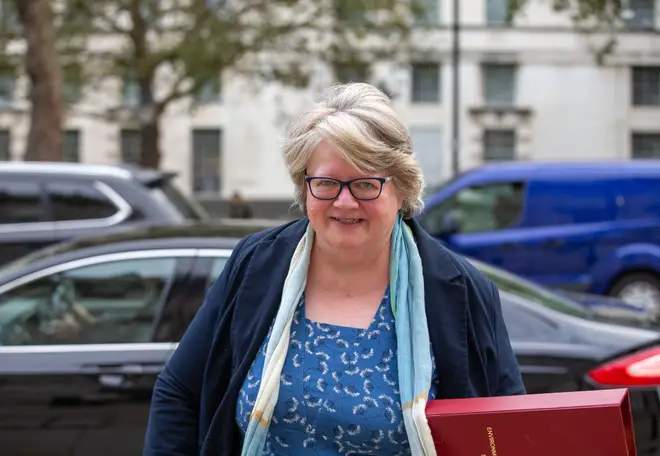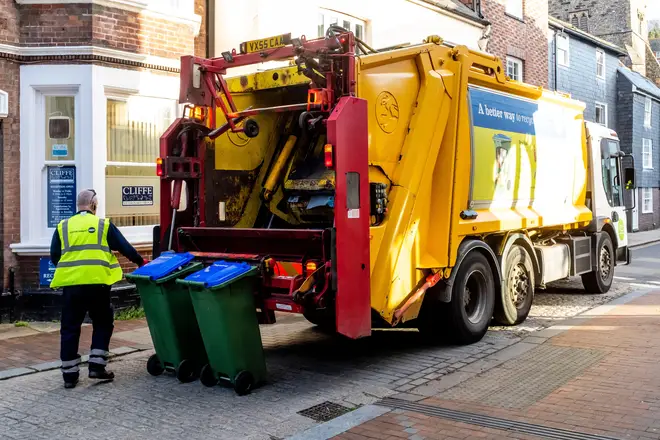
Matthew Wright 7am - 10am
25 October 2023, 16:07 | Updated: 26 October 2023, 15:57

Millions of Britons are set to face major changes in bin collections due to the government’s rules on recycling.
Recycling will be standardised from 2026, when all homes, schools and businesses will recycle the same materials, according to the government.
These rules may also be expanded to cover places of worship, charity shops, residential hostels and prisons.
There will also be changes to the collection of food waste, which will see scraps being collected at a minimum of once-a-week.
The government says this will reduce the amount of food ending up in a landfill.
In what Environment Secretary Therese Coffey describes as a "postcode lottery", the current system sees people living in different areas unable to recycle the same materials.
For example, glass is not currently collected from homes in Leeds but it is in Sheffield.
She said: "Simpler recycling will help us all recycle more easily, doing our bit to help save the planet and make the best use of precious resources that we use every day.
"Alongside weekly food waste collections, we are ending the postcode lottery of what you can put in your bin so that wherever you live in the country, you will be able to recycle the same products with confidence."

Ministers plan to introduce free garden waste collections for every home, taking away the choice from councils to charge or not.
However, the District Councils' Network (DCN) warns this could lead to people who don't use the service paying for those who do.
The DCN, which represents many local authorities, also state that councils may not be able to obtain the right recycling equipment, such as bins, vehicles and larger depots, to meet the 2026 deadline.
Councillor Sarah Nelmes, the DCN's environment spokesperson, said: "Today's announcement that councils will be able to collect waste materials however they decide is a victory for common sense.
"We can continue to rely on the local solutions which have increased recycling rates and we now have the certainty we need to take long-term decisions on how to improve services for our residents and to help us move towards net zero.
"Although we will be spared the costs of buying vast numbers of bins and vehicles for the sole purpose of conforming to top-down stipulation, there will still be significant costs attached to the reforms, and we await further detail from the Government on how they will be funded."
The government have said it will provide "reasonable funding" to cover the extra costs councils may face.
The money will come from new burdens funding and payments through Extended Producer Responsibility for packaging.
The government proposed these changes in 2021 to contribute towards its goal of eliminating all reusable and recyclable waste going to landfills by 2050.
It is also proposed that non-hazardous industrial waste should be collected every two weeks.
Councils are worried this will negatively impact the environment as more fuel will be used during transportation.
England currently has a recycling rate of over 44%, which has stagnated for the last ten years.

On 1 October, single-use plastic items were banned with the hope of boosting England’s recycling rates.
Darren Rodwell, an environment spokesperson for the Local Government Association (LGA), said: "Public satisfaction with local waste services remains very high, which councils have worked hard to achieve.
"What works in urban centres is different to rural communities. We are pleased the government has listened to the LGA and councils and decided not to significantly reduce the flexibility in how councils collect waste from people's homes.
"Our national ambitions for waste and recycling will only be achieved by fully empowered local delivery, alongside measures transferring the costs from taxpayers onto the waste producers."